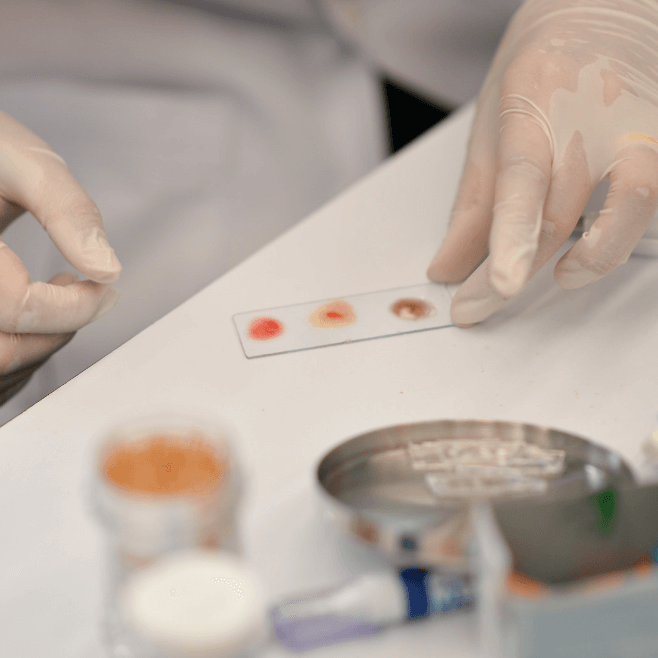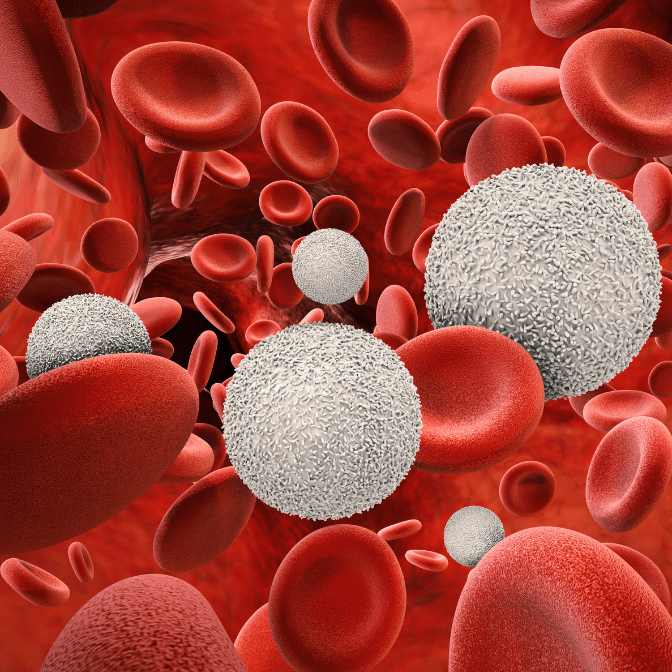Blood is a complex fluid and a vital component of the body, blood contains many different types of cells and proteins that perform their own functions, and it is responsible for the transportation of essential substance throughout the body. But what is blood testing, and how does it work?
Composition of Blood
Blood is composed from a combination of several types of cells, called blood cells, with each component being unique, and having its own role in the overall function of the blood, ultimately working together to keep it healthy.
The first, and most abundant type of cell in the blood are Red Blood Cells, which are responsible for transporting oxygen to cells in the body, red blood cells contain a protein called haemoglobin, which bind to oxygen, carrying it from the lungs to cells.
White Blood Cells are the bodies primary defence system, and are key for fighting off infections and disease, each form of white blood cell have its own important function in the immune system.
There are two other key components of blood that are less often highlighted, these are Platelets and Plasma. Platelets aid in blood clotting and coagulation of the blood, and are formed in bone marrow, and circulate in the blood, whereas Plasma is the liquid component of blood, made of water, electrolytes, and proteins. Plasma helps to move nutrients, hormones, and waste products throughout the body.
How does blood function?
- Transportation of Substances: Our body relies on the blood to circulate the vital substances that it needs, with red blood cells being the main method of how oxygen is transported, whereas nutrients and hormones are carried by the plasma throughout the body.
- Regulation of Body Temperature: Blood regulates the body’s temperature, if it is too warm, blood vessels will begin to dilate allowing for more blood to flow towards the skin’s surface, helping to disperse heat. In contrast, when the body is too cold, these blood vessels contract, which reduces blood flow to the skin allowing the body to conserve heat.
- Protection against Infection: The body is protected against infections by white blood cells, these cells identify foreign bodies and will attack viruses and bacteria, stopping them from causing harm to the body, or reducing the impact of infections.
- Blood Clotting: Platelets trigger the process that prevents excessive bleeding when a blood vessel is injured, and can seal the injured blood vessel.
How important is blood testing?
To diagnose and monitor a variety of health conditions, blood can be taken as a sample and analyzed for abnormalities in the blood cells, which can be used to help identify infections of diseases. It can also be used to monitor how effective treatments are, which is particularly useful for chronic conditions that need constant monitoring.
Regular blood tests can also help identify risk factors for chronic diseases like diabetes, heart disease, and cancer, which is key in early prevention and intervention. Ideally it is best for adults to have a full blood test once every two to three years, and if you are at a higher risk of developing health conditions, it is best to take tests more regularly.
The ABO system
Our blood type is determined by antigens (proteins) that are present on the surface of red blood cells, these are inherited from our parents. Four main blood types exist in the ABO system, these are blood type A, B, AB, and O.



Does your blood type affect tests?
Your blood type will not have an impact on blood tests, but it will affect how blood transfusions and organ donations are done, this is because your blood has to be compatible in these processes. For example, if someone has blood type A, they can receive a blood transfusion from anyone who has blood type A or O, but not from those that have type B or AB. Similarly, if an individual has the blood type O, they are considered a universal donor, because their blood can be given to anyone of any blood type, whereas blood type AB can receive blood from anyone with any blood type, becoming a universal recipient.
Our Blood Tests:
-
General well-being blood test
This wellbeing screen is a panel of multiple tests to give an indication of overall wellbeing. Monitoring can help indicate the body's response to changes such as the initiation of a new fitness regime or weight loss or gain plan.
View more details£90.00
View details -
Advanced iron deficiency (Anaemia) test
The advanced anaemia screen includes tests for haemoglobin levels and a full blood count. The results of these tests can show whether you have any signs of general health problems, as well as giving an indication of your overall blood health.
View more details£60.00
View details -
Allergy test
This FastPoc allergy test checks your blood for 20 common allergies, including ragweed, mugwort, grass, rye, birch, ficus/latex, cat dander, dog dander, dust mites, egg white, cow's milk and much more...
View more details£192.00
-
B12 Vitamin injections – Out of stock
B12 hydroxocobalamin vitamin injections
View more details£23.00
